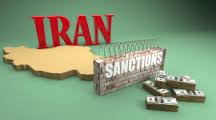Schlumberger OFAC Enforcement Action – A New Threat?
 I have been writing lately about the rise of OFAC sanctions enforcement. OFAC and the Justice Department have started to build a close working relationship similar to that between the SEC and the Justice Department relating to FCPA enforcement.
I have been writing lately about the rise of OFAC sanctions enforcement. OFAC and the Justice Department have started to build a close working relationship similar to that between the SEC and the Justice Department relating to FCPA enforcement.
For years, the blockbuster OFAC sanctions enforcement cases have involved the financial industry. DOJ’s recent settlement with Schlumberger Oilfield for $232 million demonstrates DOJ’s commitment to sanctions enforcement outside the financial industry.
DOJ announced a theory of prosecution against Schlumberger based on the concept of “facilitation,” or a failure to segregate foreign operations from US operations.
DOJ has sent an important message to global companies subject to US sanctions. Global companies that want to conduct business with US-sanctioned entities have to ensure that no part of its US operations is used to provide goods or services to a prohibited business.
US sanctions require global corporations operating in both the US and sanctioned countries to keep their respective sanctions and non-sanctioned operations separated from each other. DOJ articulated a theory of “facilitation” prohibiting companies from using US-based operations to support the company’s business in sanctioned countries.
Under sanctions law, US citizens (and green card holders) and US entities are barred from dealing with sanctioned countries in accordance with the specific requirements for each sanctioned program. The exact prohibition varies by sanctions program and applicable regulations. Some sanctions programs (e.g. Iran and Cuba) are more restrictive than others. The recent sanctions program applied to Russia and Crimea include specific sectoral sanctions that require careful attention.
The Iran, Syria, Cuba and Sudan-related programs prohibit US persons from “facilitating” prohibited transactions. In other words, sanctions programs prohibit US persons from doing
indirectly what they cannot do directly.
DOJ and OFAC do not have a long record of enforcement based on the facilitation theory against non-financial companies. The Schlumberger precedent is a warning to other non-financial institutions that they need to ensure segregation of operations and compliance with US sanctions.
In the Schlumberger settlement, DOJ cited the fact that Schlumberger’s US operations routinely approved capital expenditure requests, provided strategic direction and supplied technical support for Schlumberger’s operations in Iran and Sudan. Schlumberger US employees sought to conceal the locations of the sanctioned countries to which they provided support.
Global companies that seek to conduct business in prohibited countries have to reexamine their sanctions compliance program to ensure they do not run afoul of the facilitation limitation. A specific review of various functions should be conducted to ensure that US officers, supervisors and employees do not:
- Approve, finance, insure or guarantee any transaction they themselves could not conduct directly;
- Provide services in support of a prohibited activity
- Provide merchandise as part of a prohibited transaction
- Refer business to a foreign person that would involve a prohibited transaction
Schlumberger approved expenses related to business in Iran and Sudan, and provided important business advice and guidance to entities operating in Iran and Sudan.
 Sanctions compliance is more important than ever – companies need to spend more time to review, assess and enhance their sanctions compliance programs. Most companies know how to screen potential customers, business partners, vendors and suppliers against OFAC lists of prohibited persons and entities. While such a process is important to a compliance program, much more is needed to ensure compliance throughout a company’s operations.
Sanctions compliance is more important than ever – companies need to spend more time to review, assess and enhance their sanctions compliance programs. Most companies know how to screen potential customers, business partners, vendors and suppliers against OFAC lists of prohibited persons and entities. While such a process is important to a compliance program, much more is needed to ensure compliance throughout a company’s operations.
Schlumberger had comprehensive compliance policies and procedures. However, Schlumberger failed to conduct adequate training of its employees. As a result, Schlumberger employees sought to evade US sanctions laws to support operations in prohibited countries. No one raised a concern about the practices and no audits ever identified employees who may be engaged in unlawful conduct. In fact, some senior managers were unfamiliar with Schlumberger’s compliance policies and assisted employees in conducting such prohibited operations.
















1 Response
[…] Fox runs a guest post on Canadian whistleblower law. Mike Volkov sees new threats in the Schlumberger case and finds the missing link in due diligence. The FCPA Blog […]